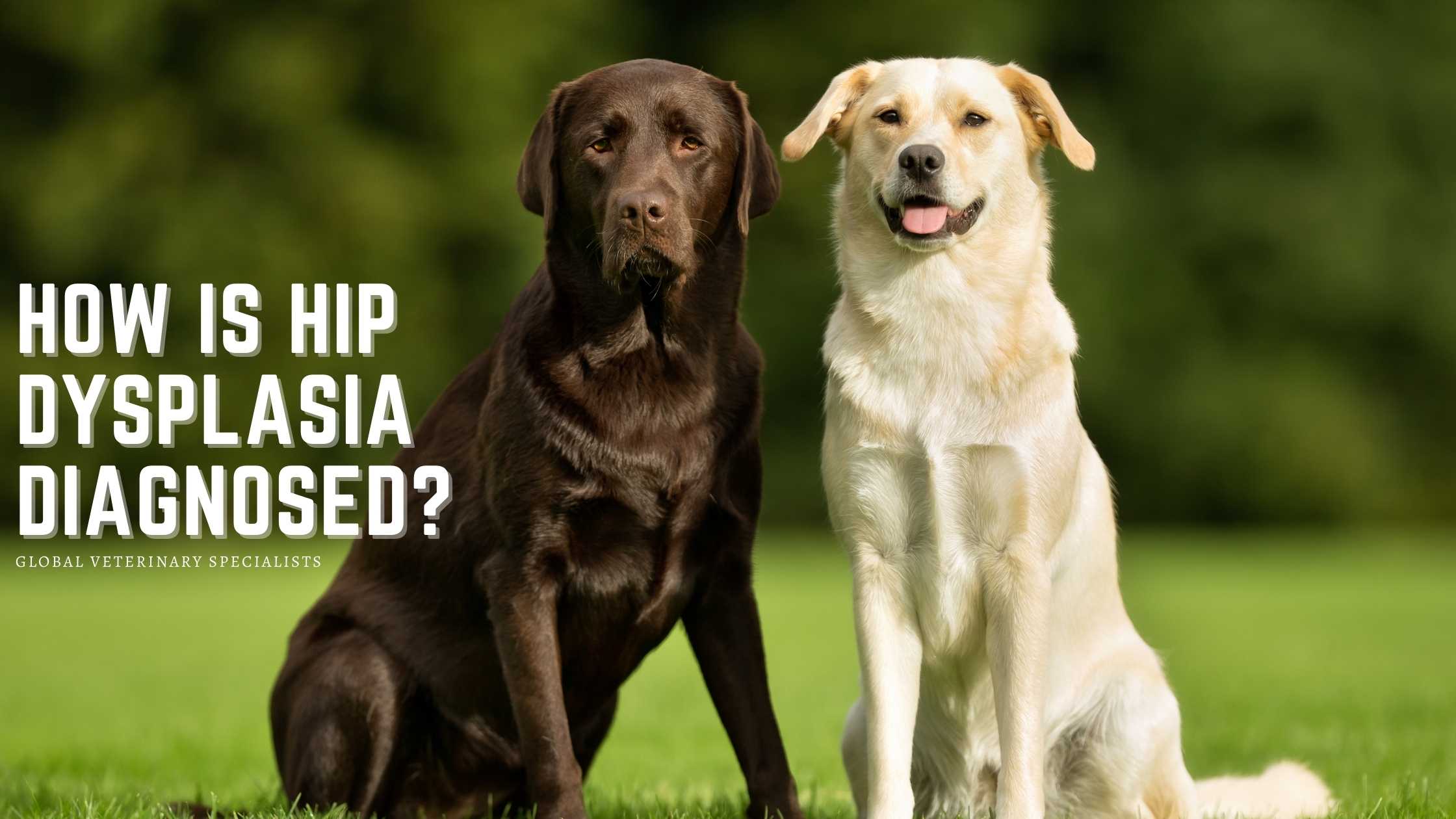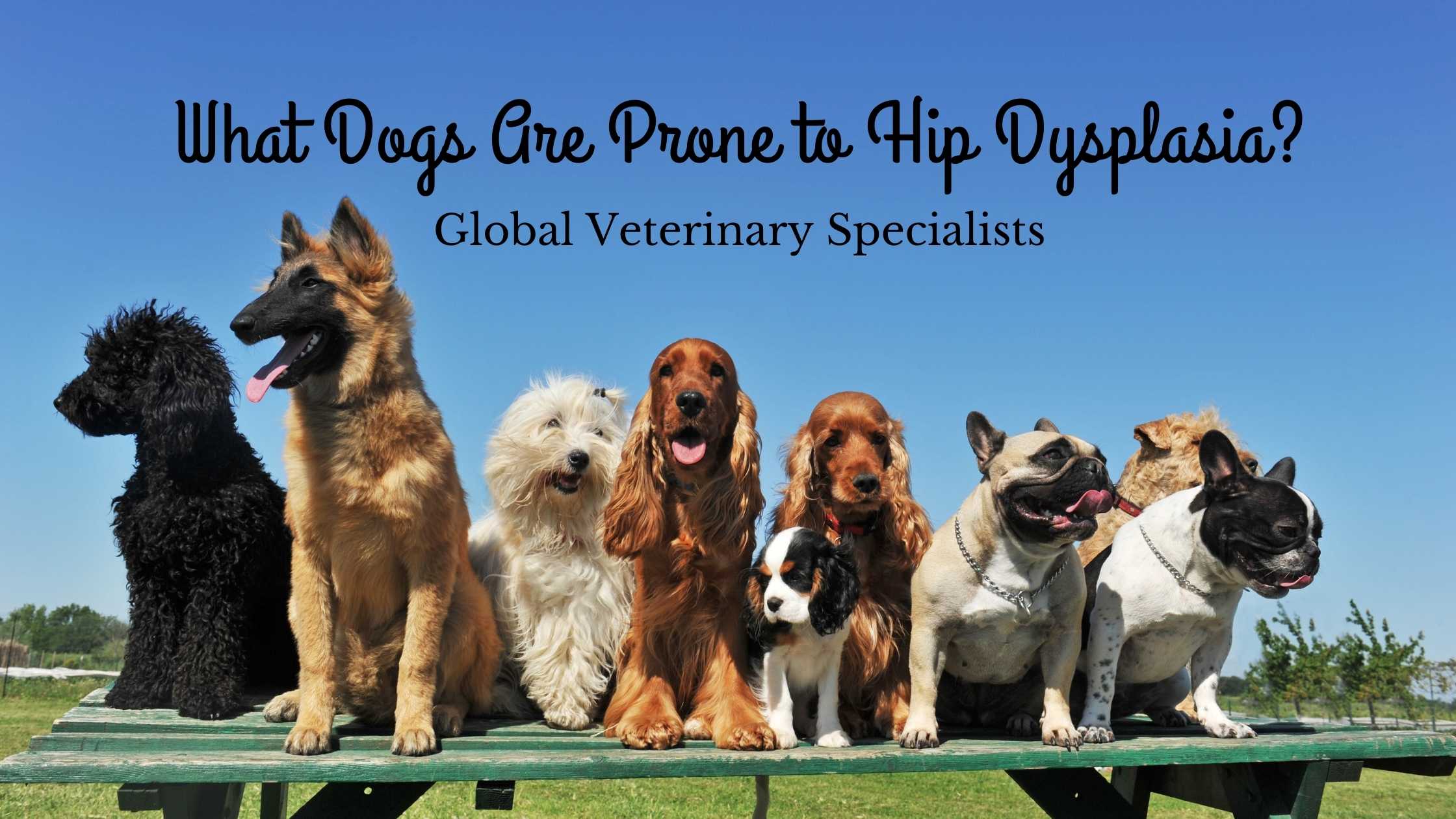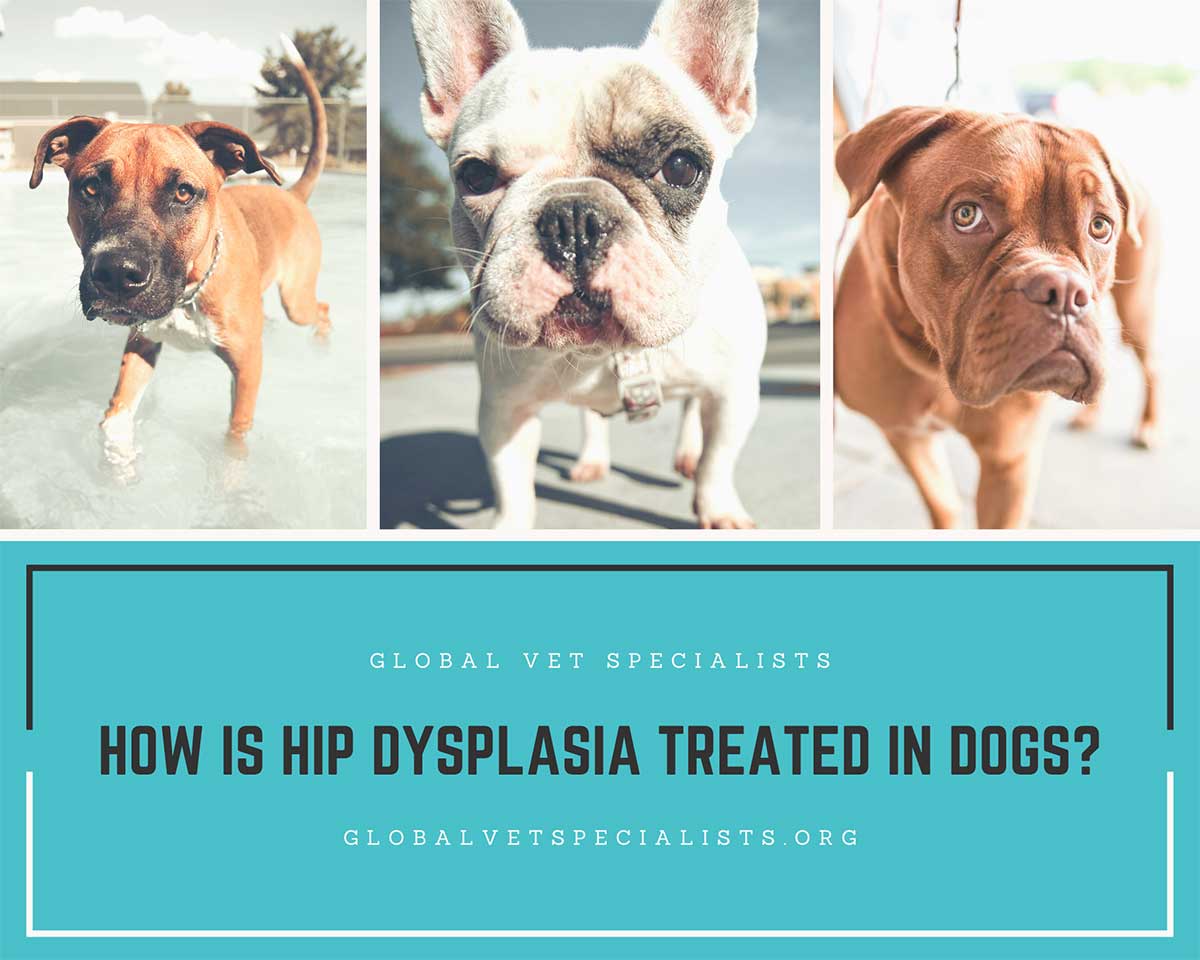There are several treatment options for canine hip dysplasia, both non-surgical and surgical, depending on the condition’s severity and your dog’s health. Conservative medical management and surgery, with total hip replacement (THR) providing the most effective relief, are two standard treatment options. Combining these options with exercise restrictions, physical therapy, and other lifestyle modifications are often...
Category: Global Veterinary Specialists
How is Hip Dysplasia Diagnosed?
Hip dysplasia (HD) is a condition that results from the abnormal development of the hip joint in which the ball does not fit snugly into the socket. It can affect both cats and dogs of any size or breed. A comprehensive examination must be completed to rule out other causes of hind lameness or conditions...
What Causes Hip Dysplasia?
Hip dysplasia (HD) is characterized by abnormal laxity of the hip joint, in which the ball and socket do not fit correctly, resulting in irregular wear of the joint surfaces. The condition leads to inflammation, pain, and lameness and may ultimately necessitate surgical intervention. The cause of hip dysplasia is multifactorial. That means several factors...
What Dogs Are Prone to Hip Dysplasia?
Hip dysplasia (HD), while more common in popular medium and large breeds, can reduce the quality of life for dogs of any size or breed. The condition has also been reported in cats. Although the exact cause is multi-factorial, it develops when the bones and soft tissues develop at a disproportionate rate, resulting in abnormally...
Hip Dysplasia in the Winter
Your pet may feel more discomfort during the winter since temperatures have dropped and may show more or worsening symptoms if they have been diagnosed with hip dysplasia. It is essential to be conscious of your pet’s health, safety, and comfort when it is cold outside to ensure that they, too, have the happiest of holidays....
Tips to Keep Your Pet Safe on Thanksgiving
Thanksgiving is on Thursday, November 26, this year. It is a time to connect with friends and family, watch the Macy’s Thanksgiving Day parade, and express gratitude. However, you choose to celebrate the day; taking extra steps to ensure safety, including your pets’ safety, is essential. The following tips will help prevent having to make...
Halloween Safety Tips for Your Pets
With Halloween 2020 just three days away, it is essential to ensure your safety and that of your family and pets as you finalize plans for the evening’s costumes and activities, whether virtual or in-person. Dogs suffering from hip dysplasia, depending on the severity, may require special attention to prevent exacerbating their condition. We invite...
Your Questions, Answered by a Veterinary Surgeon
A veterinary surgeon will not hesitate to recommend and perform total hip replacement (THR) surgery when the indications for surgical intervention are present, and no other higher priority problems exist. Here are some of the most common questions pet owners ask, answered by a skilled and experienced veterinary surgeon. What breeds are more susceptible to hip dysplasia?...
Happy Father’s Day!
How is Hip Dysplasia Treated in Dogs?
Hip dysplasia in dogs of varying sizes and breeds is one of the most common causes of hind limb lameness. The condition occurs when the ball does not fit tightly inside its socket, causing abnormal joint laxity or looseness that, without treatment, will worsen over time. Inflammation and joint damage are common if hip dysplasia...









